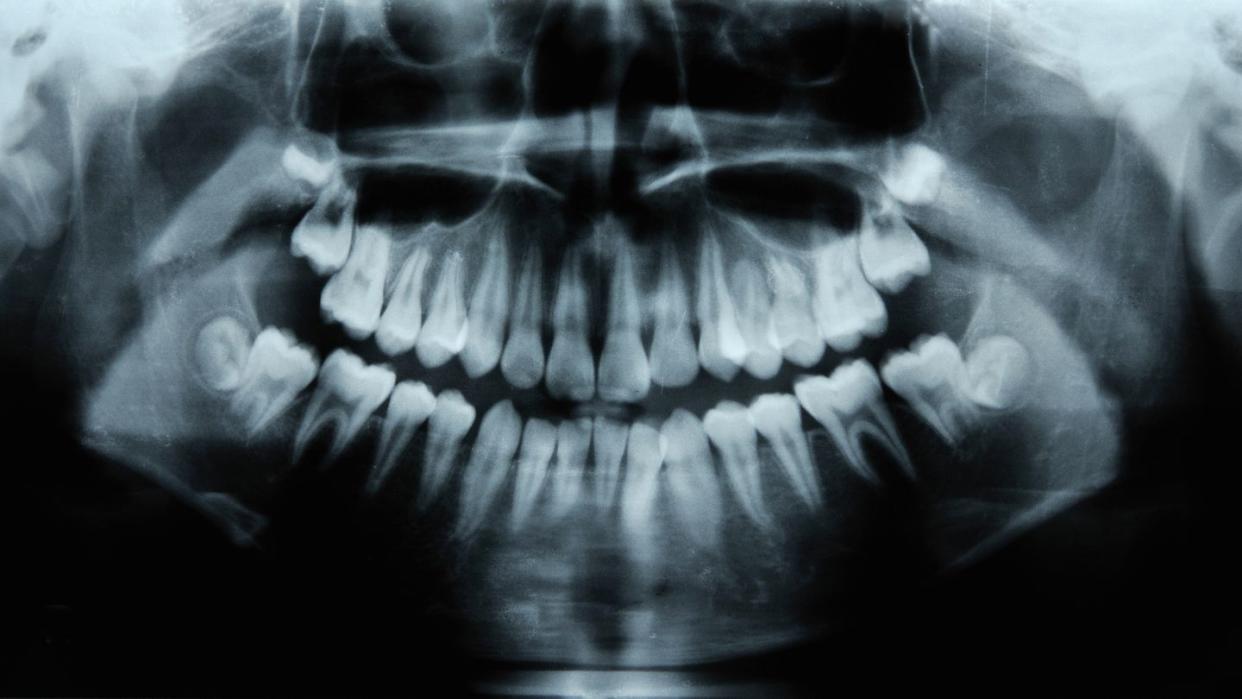Humans Have a Third Set of Teeth. New Medicine May Help Them Grow.

"Hearst Magazines and Yahoo may earn commission or revenue on some items through these links."
A 2021 study out of Japan showed how targeting genes can regrow teeth in animals. Now, the team has turned to a human clinical trial.
By targeting the USAG-1 gene, researchers believe that they can help people without a full set of teeth regrow teeth.
The team says that humans have a third set of teeth available as buds, ready to grow as needed.
A sliver of what makes sharks so intriguing comes with their ability to regrow teeth. And while a group of Japanese researchers aren’t claiming that we should be trying to be the most shark-like possible, they’d like for us to maybe, someday, share that same ability.
Following up on a 2021 study (published in Scientific Reports) that showed how medicine targeting the protein synthesized by the USAG-1 gene could impact the number of teeth grown in animals, the team has turned its attention to humans. They’ve announced a 2024 clinical trial of the medicine, which they in turn hope to have ready for general use in 2030.
“The idea of growing new teeth is every dentist’s dream. I’ve been working on this since I was a graduate student. I was confident I’d be able to make it happen,” Katsu Takahashi, lead researcher and head of the dentistry and oral surgery department at the Medical Research Institute Kitano Hospital in Osaka, told Mainichi. “We’re hoping to see a time when tooth regrowth medicine is a third choice alongside dentures and implants.”
Takahashi has spent years researching teeth regrowth potential, and has focused on the role of genes in teeth growth. “The number of teeth varied through the mutation of just one gene,” he said. “If we make that the target of our research, there should be a way to change the number of teeth (people have).”
Researchers found that the USAG-1 protein could limit the growth of teeth in mice, so ensuring that the protein didn’t form could potentially invite teeth to grow. The team developed a medication to block the protein, and successfully allowed mice to grow new teeth.
A 2023 paper published in Regenerative Therapy decries the lack of treatments available for tooth regrowth, but highlights how the anti-USAG-1 antibody treatment in mice could offer “a breakthrough in treating tooth anomalies in humans.”
With about 1 percent of humans suffering from anodontia, a genetic condition that doesn’t allow a full set of teeth to grow, there is hope for teeth regrowth in humans beyond just mice-centric trials.
And that hope, Takahashi claims, should be further encouraged by the fact that we already come pre-loaded with the starting point. His said that his previous research shows that humans have the start of a third set of teeth already embedded in our mouths. This is most visibly exhibited by the 1 percent of humans with hyperdontia, the growing of more than a full set of teeth. And Takahashi believes that activating that third set of buds with the right gene manipulation could promote teeth regrowth.
If all goes well in the upcoming clinical trial, the world may have more teeth as soon as 2030.
You Might Also Like

